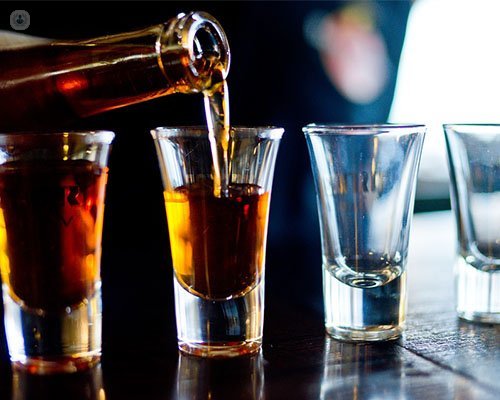Alcoholism in minors: how to deal with it
Written by:The average age at onset of alcohol consumption in Spain is 13.8 years, one of the lowest in Europe. At these ages, the brain is in full development not only from the biological, but psychological point of view. Precisely this phase of maturation will be determinant for the adult age. Undoubtedly, it is a very important health problem as these early ages are especially vulnerable to arouse addictive diseases or psychological problems that will require a specific therapeutic approach.
Is alcoholism in minors an issue in society?
Despite the fact that society and the authorities are aware of the risk behavior of minors, it is necessary to give shape and structure to health prevention interventions in the field of drug addiction and alcoholism in which society, authorities, families and health and education professionals, we all agree.
These actions aim to raise awareness of such important issues as risk-taking and the medical, psychological, social and functional consequences of problematic drug or alcohol use.

How does television influence alcoholism in minors?
The visual and auditory stimuli that shape these neuromarketing campaigns are very powerful. There is a thin line separating the message of encouraging responsible alcohol consumption and repeated consumption that can become excessive or abusive.
In addition, the message of success and being different that implies many types of these ads, is far from the everyday reality, although it is a message very seductive for the younger people and who carry a maturity according to their age.
What consequences does alcohol have on a minor's body?
The purely organic consequences can go unnoticed over a long period of time because the body's capacity to adapt to these ages is high, so the perception of damage at this level by the young person does not cause excessive alarm. The psychic consequences are earlier and more evident when the consumption of alcohol or other drugs begins to assume a habitual in the life of the young person. Increased impulsiveness, apathy, states of irritability, anxiety or behavioral alterations translate into tensions in coexistence and distortions in social relations.
Undoubtedly, the brains of minors are in full neurodevelopment. The attentional and cognitive processes can be depleted in the long term, or worse, never reach an expected development at age. On the other hand, we have other brain dimensions such as the emotional brain and reward brain whose maturation is also altered with the risk of generating psychiatric pathologies at an early age.
How should a case of underage drinking be addressed?
The preventive and therapeutic approach must be interdisciplinary and multidimensional. It involves integrating a social conscience capable of redirecting cultural beliefs and habits towards healthier living patterns.
The tools would come from a common political commitment to give priority to health promotion and prevention campaigns that integrate the child and his / her families with education professionals and health professionals. These campaigns, in addition to being directed before the addiction is a reality in the young, are an early detector of the existence of minors at risk that would result in a better citizen awareness and avoid having to act when the disorder derived from alcohol consumption or drugs is established as a disease in the person.


